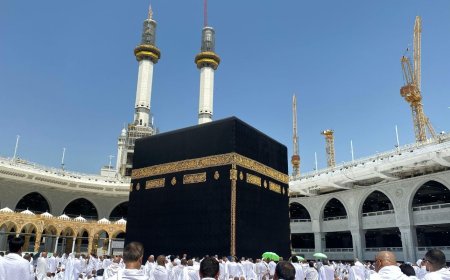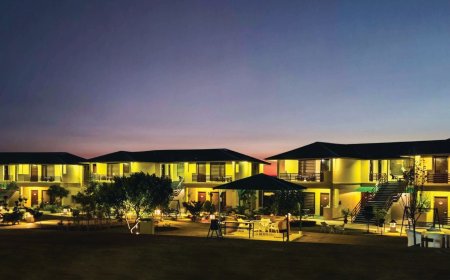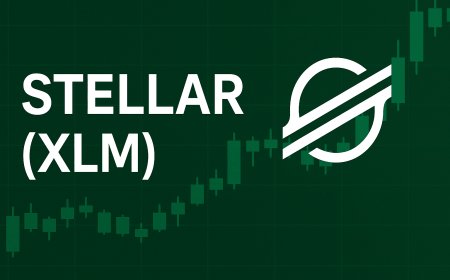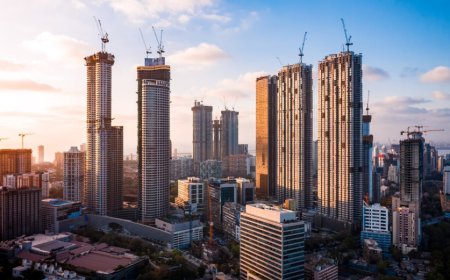Top 10 Washington Spots for Night Markets
Introduction Washington state is home to a thriving cultural mosaic, and one of its most dynamic expressions emerges after sunset: the night market. These open-air gatherings blend street food, handmade crafts, live music, and community spirit into unforgettable evening experiences. But not all night markets are created equal. With the rise of commercialized pop-ups and transient events, finding a
Introduction
Washington state is home to a thriving cultural mosaic, and one of its most dynamic expressions emerges after sunset: the night market. These open-air gatherings blend street food, handmade crafts, live music, and community spirit into unforgettable evening experiences. But not all night markets are created equal. With the rise of commercialized pop-ups and transient events, finding a night market you can truly trust—where quality, safety, and authenticity are prioritized—has become more important than ever.
This guide highlights the top 10 night markets in Washington that have earned the trust of locals, visitors, and food critics alike. Each has been vetted for consistent vendor quality, clean facilities, transparent operations, and deep community roots. These are not just places to shop or eat—they are living expressions of Washington’s diverse neighborhoods, immigrant heritage, and entrepreneurial spirit.
Whether you’re a foodie chasing spicy laksa or a collector hunting hand-thrown ceramics, these ten destinations offer more than fleeting trends. They offer reliability. They offer connection. And above all, they offer trust.
Why Trust Matters
In an era where pop-up markets spring up overnight and vanish just as quickly, trust becomes the currency of meaningful experiences. A trusted night market delivers more than just food or goods—it delivers consistency, safety, and integrity.
First, trust ensures food safety. Vendors at reputable markets undergo health inspections, maintain proper storage and handling practices, and often hold certifications. This isn’t just about avoiding illness—it’s about respecting the craft of cooking and the dignity of the people who prepare your meal.
Second, trust means authenticity. Many of Washington’s best night markets are rooted in immigrant communities—Thai, Korean, Mexican, Ethiopian, and more. When a market is run by those communities, the food, music, and traditions are genuine, not diluted for tourist appeal. You’re not just tasting a dish—you’re tasting a culture.
Third, trust implies accountability. Trusted markets have established operating hours, clear vendor guidelines, and responsive management. If something goes wrong—a stall closes unexpectedly, a product is mislabeled, or a safety concern arises—you know there’s a system in place to address it.
Finally, trust fosters community. These markets aren’t just commercial spaces—they’re gathering places. They host local artists, support small businesses, and create economic opportunity for families who might otherwise be excluded from mainstream retail. When you support a trusted night market, you’re investing in the fabric of your region.
Choosing a market based on trust transforms a casual outing into a meaningful ritual. It turns a shopping trip into a cultural exchange. And in a world increasingly dominated by algorithms and impersonal transactions, that’s a rare and valuable thing.
Top 10 Washington Spots for Night Markets
1. Seattle International Night Market – Beacon Hill
Located in the heart of Seattle’s Beacon Hill neighborhood, the Seattle International Night Market is the largest and most culturally diverse night market in the state. Founded in 2016, it has grown into a biannual event drawing over 20,000 visitors each season. Vendors represent more than 30 countries, offering everything from Filipino lumpia and Ethiopian injera to Vietnamese banh mi and Pakistani samosas.
What sets this market apart is its rigorous vendor selection process. Each applicant must demonstrate a direct cultural connection to the cuisine or craft they offer. The market partners with local nonprofits to ensure fair wages and safe working conditions for all vendors. Lighting is designed for safety, with clear walkways and security personnel stationed throughout. Free cultural performances—including traditional dance and live taiko drumming—take place on the main stage every evening.
Regular attendees praise the market for its authenticity and cleanliness. Unlike other events that rely on imported goods, nearly every product here is handmade or home-cooked by the vendor. The market also offers free cultural workshops, from calligraphy to tea ceremonies, making it as educational as it is delicious.
2. Tacoma Night Market – Downtown Tacoma
Set against the backdrop of the historic Tacoma Dome and the scenic waterfront, the Tacoma Night Market has become a beloved fixture in the city’s cultural calendar. Held every Friday evening from May through September, this market emphasizes local artisans and immigrant-owned food businesses.
What makes Tacoma’s market trustworthy is its long-standing relationship with the city’s Department of Economic Development. All vendors are required to hold valid food service permits and undergo annual safety training. The market also partners with local schools to provide internships for culinary and business students, ensuring a pipeline of skilled future entrepreneurs.
Highlights include the “Taste of Tacoma” section, where six local chefs each prepare a signature dish using only regional ingredients. The market also features a “No Plastic” policy—vendors must use compostable or reusable packaging, and reusable dishware is available for rent. A community board allows visitors to leave feedback, which is reviewed weekly by market organizers to improve operations.
3. Spokane Night Market – Riverfront Park
Spokane’s Night Market, held in the heart of Riverfront Park, is a summer tradition that draws families and young professionals alike. What began as a small gathering of local food trucks has evolved into a curated event featuring over 40 vendors, including a dedicated “Artisan Alley” for handmade jewelry, pottery, and textiles.
Trust here comes from transparency. The market publishes its vendor roster online before each event, including photos, bios, and product descriptions. All food vendors are required to display their latest health inspection scores visibly at their stalls. The market also employs a “Meet the Maker” program, where visitors can speak directly with vendors about their craft, ingredients, and story.
Environmental responsibility is a core value. The market uses solar-powered lighting, provides free water refill stations, and partners with local composting services to handle all waste. A volunteer-run “Green Team” helps visitors sort waste correctly. The market’s organizers also host quarterly community forums to gather input on future improvements.
4. Bellingham Night Market – Fairhaven District
Nestled in the historic Fairhaven district of Bellingham, this market has a cozy, walkable charm that feels like stepping into a European piazza after dark. Held on the third Saturday of each month from April to October, it features a tight-knit group of 25–30 vendors, all of whom must live or operate their business within 50 miles of the market.
Trust is built through exclusivity and consistency. Only local, independent vendors are accepted—no franchises, no chain restaurants, no imported mass-produced goods. Each vendor is interviewed by a selection committee that includes previous vendors, local chefs, and neighborhood representatives. The market also enforces a strict “no reselling” policy: all items must be made or prepared by the vendor themselves.
Live acoustic music plays softly in the background, and the market encourages lingering—benches and picnic tables are plentiful. A “Family Hour” from 5–6 p.m. offers discounted prices for children and seniors. The market’s website includes a detailed map, vendor spotlight videos, and a “What’s New” section updated weekly.
5. Olympia Night Market – Capitol Campus
Located just steps from the Washington State Capitol building, the Olympia Night Market blends civic pride with culinary diversity. Organized by the city’s Office of Cultural Affairs, this market operates every Thursday evening from June to September and features a curated mix of food, art, and performance.
Trust is institutionalized here. The market is funded and overseen by city staff, ensuring accountability and consistency. All food vendors are vetted through the Thurston County Health Department, and their permits are publicly accessible. The market also hosts a “Cultural Exchange” program, where local high school students interview vendors and create short documentary films that are screened on-site.
What makes Olympia unique is its emphasis on accessibility. The market is fully ADA-compliant, with wide pathways, braille menus, and ASL interpreters available upon request. Free parking is provided, and shuttle buses run from nearby neighborhoods. The market also partners with local food banks to donate unsold food at closing each night.
6. Renton Night Market – Downtown Renton
Once a quiet industrial town, Renton has transformed into a cultural hub, and its night market is at the center of that change. Held on the first Saturday of each month, the Renton Night Market brings together a vibrant mix of Southeast Asian, Latin American, and Pacific Islander communities.
Trust here stems from community ownership. The market is run by a nonprofit collective of local business owners, many of whom are first-generation immigrants. All profits are reinvested into the market or donated to local youth arts programs. Vendors are selected through a public nomination process, and the community votes on new applicants each quarter.
Every vendor must commit to using at least 70% locally sourced ingredients. The market also features a “Buy One, Give One” initiative: for every meal purchased, a meal is donated to a local family in need. A community bulletin board allows visitors to post stories, photos, and thank-you notes to vendors—creating a living archive of the market’s impact.
7. Yakima Night Market – Downtown Yakima
In the heart of Washington’s agricultural region, the Yakima Night Market celebrates the rich heritage of the Yakima Valley’s Latino, Hmong, and Middle Eastern communities. Held every Friday evening from May to October, it’s one of the most authentic markets in the state.
Trust is earned through decades of community relationships. Many vendors have been participating since the market’s inception in 2014. The market is hosted by the Yakima Valley Museum and supported by local agricultural cooperatives, ensuring that produce is harvested the same day it’s sold. All food is prepared using traditional family recipes, passed down through generations.
Visitors can tour a “Heritage Corner,” where elders share stories of migration, farming, and food preservation. The market also hosts monthly cooking demonstrations led by master chefs. A “Language Table” allows visitors to practice basic phrases in Hmong, Spanish, and Arabic with native speakers. The market’s organizers publish an annual impact report detailing vendor earnings, community outreach, and environmental metrics.
8. Everett Night Market – Mukilteo Lighthouse District
Set along the scenic waterfront of Mukilteo, just north of Everett, this market offers stunning views of Puget Sound alongside an eclectic mix of global flavors. Held on the second Saturday of each month from May to October, it’s known for its relaxed, family-friendly atmosphere.
Trust is maintained through strict vendor standards and a transparent application process. Each applicant must submit a sample menu, ingredient list, and photos of their setup. A rotating panel of community members, including parents, teachers, and retired chefs, reviews applications. Vendors are ranked on originality, safety, and cultural authenticity.
The market features a “Kids’ Corner” with free crafts and storytelling, and a “Pet-Friendly Zone” with water bowls and treats. All vendors use biodegradable packaging, and the market provides free compost bags. A “Local Spotlight” section highlights businesses that source ingredients from within Snohomish County. The market’s website includes a real-time vendor map and live updates on wait times.
9. Vancouver Night Market – Esther Short Park
Located in the heart of downtown Vancouver, this market has become a summer staple for residents and visitors alike. Held every Friday evening from June to August, it features over 50 vendors offering everything from Korean fried chicken to hand-carved wooden toys.
Trust here comes from institutional backing and community engagement. The market is co-hosted by the City of Vancouver and the Vancouver Arts Council, ensuring professional management and accountability. All food vendors are inspected by Clark County Public Health, and inspection reports are posted on the market’s website. A “Vendor Code of Conduct” is publicly available, outlining expectations for hygiene, pricing, and customer service.
Artistic expression is central to the experience. Local musicians, poets, and dancers perform on a dedicated stage, and a “Pop-Up Gallery” showcases rotating exhibits from regional artists. The market also partners with local libraries to host free book swaps and storytelling circles. A “Feedback Station” allows visitors to submit suggestions anonymously, which are reviewed and implemented monthly.
10. Gig Harbor Night Market – Harborview Park
Perched on the shores of the Puget Sound, Gig Harbor’s Night Market combines maritime charm with global flavors. Held on the last Saturday of each month from April to October, it’s known for its picturesque setting and carefully curated vendor list.
Trust is built on exclusivity and quality control. Only 20 vendors are accepted per event, selected through a competitive application process judged by a panel of local food critics, historians, and sustainability experts. Vendors must demonstrate a minimum of two years of consistent operation and a commitment to ethical sourcing.
Each vendor receives a “Sustainability Score” based on packaging, energy use, and waste reduction. The market provides free reusable tote bags to the first 100 visitors each night. A “Taste of the Peninsula” section highlights dishes made with ingredients sourced from local farms and fisheries. The market also hosts monthly “Night Market Stories,” where visitors share personal memories tied to food, family, and place.
Comparison Table
| Market Name | Location | Season | Vendor Vetting | Food Safety | Cultural Authenticity | Community Involvement | Environmental Practices |
|---|---|---|---|---|---|---|---|
| Seattle International Night Market | Beacon Hill | Spring & Fall | Strict cultural connection required | Health inspections mandatory | High—30+ countries represented | Nonprofit partnerships, free workshops | Compostable packaging, solar lighting |
| Tacoma Night Market | Downtown Tacoma | May–Sept (Fridays) | City-certified permits required | Annual safety training | High—immigrant-owned focus | School internships, community feedback board | No plastic policy, reusable dishware |
| Spokane Night Market | Riverfront Park | Monthly (Sat) | Public bios and inspection scores posted | Health scores displayed onsite | Medium–High—local artisans | Volunteer “Green Team,” community forums | Solar lighting, water refill stations |
| Bellingham Night Market | Fairhaven District | Monthly (3rd Sat) | Must live/work within 50 miles | No reselling policy | High—home-cooked, family recipes | Family Hour, vendor spotlight videos | Reusable dishware, no single-use plastics |
| Olympia Night Market | Capitol Campus | June–Sept (Thursdays) | City-run, health department oversight | Publicly accessible permits | Medium–High—cultural exchange programs | ASL interpreters, food donations, shuttles | Zero-waste goal, composting partnerships |
| Renton Night Market | Downtown Renton | Monthly (1st Sat) | Community nomination & voting | 70% local ingredients required | High—Southeast Asian & Pacific Islander focus | “Buy One, Give One” program | Compostable packaging, community meals |
| Yakima Night Market | Downtown Yakima | May–Oct (Fridays) | Multi-year vendor loyalty | Same-day harvest sourcing | Very High—generational recipes | Heritage Corner, language tables | Minimal packaging, local sourcing |
| Everett Night Market | Mukilteo Lighthouse | Monthly (2nd Sat) | Panel review of menus and photos | Strict sample submission | High—local sourcing emphasis | Kids’ Corner, pet-friendly zone | Biodegradable packaging, compost bags |
| Vancouver Night Market | Esther Short Park | June–Aug (Fridays) | City & arts council oversight | Public inspection reports online | Medium–High—diverse global cuisine | Pop-up gallery, book swaps, feedback station | Reusable bags, waste tracking |
| Gig Harbor Night Market | Harborview Park | Monthly (Last Sat) | Competitive panel selection | Minimum 2-year operation required | High—Peninsula-sourced ingredients | Night Market Stories, sustainability scoring | Reusable tote bags, zero-waste goal |
FAQs
Are these night markets safe for children and elderly visitors?
Yes. All ten markets prioritize accessibility and safety. Wide walkways, adequate lighting, and designated seating areas are standard. Several markets offer family hours, ASL interpreters, and child-friendly activities. Many also provide free water, shaded areas, and restrooms that meet ADA standards.
Do I need cash, or are cards accepted?
Most vendors accept both cash and cards, but it’s wise to carry some cash, especially at smaller stalls. Several markets now offer digital payment kiosks or pre-purchased market tokens to streamline transactions.
How are vendors selected to participate?
Selection varies by market but typically includes application reviews, interviews, and community input. Markets with high trust ratings require proof of cultural connection, food safety certification, and ethical sourcing. Many prohibit resellers or imported goods to preserve authenticity.
Can I bring my pet to the night market?
Most markets are pet-friendly, but rules vary. Everett and Tacoma allow leashed pets in designated zones. Always check the market’s website before bringing your pet, as some events may restrict animals due to food safety protocols.
Are the food vendors licensed and inspected?
Yes. All vendors at these ten markets are required to hold valid food service permits issued by county health departments. Inspection reports are often posted online or displayed onsite. Markets like Olympia and Vancouver even publish real-time inspection scores.
What if I have dietary restrictions?
All markets list allergen information for food items, and many vendors are trained to accommodate dietary needs. Look for signs indicating gluten-free, vegan, nut-free, or halal options. Vendors are generally happy to answer questions about ingredients.
Do these markets operate year-round?
No. Most operate seasonally, typically from spring through fall, due to weather conditions. Seattle and Tacoma host events twice a year, while others run monthly. Check individual market websites for exact dates and closures.
How can I support these markets beyond shopping?
You can volunteer, provide feedback, attend community forums, or share your experience on social media. Many markets rely on community advocates to grow sustainably. Some even offer vendor apprenticeships or cultural ambassador roles.
Are these markets accessible by public transit?
Yes. Most are located near bus stops or light rail stations. Seattle, Tacoma, and Olympia have direct transit links. Many markets also offer free shuttles from nearby neighborhoods during peak seasons.
Why don’t these markets have big-name brands or franchises?
Because trust is built on authenticity, not corporate presence. These markets intentionally exclude chains and mass-produced goods to protect local economies and cultural integrity. The goal is to celebrate small-scale, community-rooted entrepreneurship—not commercialization.
Conclusion
The night markets of Washington are more than places to eat or shop—they are living archives of culture, resilience, and community. In a world where fleeting trends often overshadow lasting value, these ten destinations stand as beacons of integrity. They are places where a grandmother’s recipe is honored, where a young artist sells their first sculpture, where strangers become neighbors over a shared plate of dumplings.
Trust isn’t given—it’s earned, one honest interaction, one clean stall, one transparent policy at a time. These markets have earned it through consistency, care, and deep connection to the people they serve. They don’t just open after dark—they open hearts.
When you visit one of these ten, you’re not just attending an event. You’re participating in a tradition. You’re supporting a family. You’re preserving a culture. And you’re helping ensure that the next generation will have a place to gather, to taste, and to belong.
So go—after sunset, when the lights glow and the aromas rise. Find a table. Try something new. Talk to the vendor. Let the rhythm of the night remind you that the best experiences aren’t found in advertisements—they’re found in places you can trust.





























